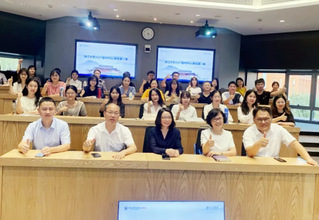时间:2015年12月24日(周四),下午1:30
地点:体育外围平台APP1002会议室
主持人:金庆伟
报告题目:Service Region Design for Urban Electric Vehicle Sharing Systems
报告人:Long HE
Assistant Professor, Department of Decision Sciences, National University of Singapore
报告摘要:Emerging collaborative consumption business models have shown promise in both generating business opportunities and enhancing efficient use of resources. In the transportation domain, car sharing models are adopted at mass scale in major metropolitan areas worldwide. This mode of servicized mobility bridges the resource efficiency of public transit and the flexibility of personal transportation. Beyond significant potential to reduce car ownership, car sharing shows promise in supporting adoption of fuel efficient vehicles, such as electric vehicles (EVs), due to these vehicles special cost structure with high purchase but low operating costs. Recently, it has become a trend for key players in the car sharing business, such as Car2Go and Autolib, to employ EVs in an operations model that accommodates one-way trips. On the one hand, the one-way model brings about significant improvements in coverage of travel needs and therefore adoption potential, compared with the conventional round-trip-only model (advocated by ZipCar, for example). On the other hand, it poses tremendous planning and operational challenges. In this work, we study the planning problem faced by service providers in designing the geographical service region in which to operate the service. This decision encompasses the trade-o between maximizing customer catchment by covering travel needs, and controlling fleet operations costs. We develop a mathematical programming model that incorporates details of both customer adoption behavior and fleet management (including EV repositioning and charging) under spatially-imbalanced and time-varying travel patterns. To address inherent planning uncertainty with regard to adoption patterns, we employ a distributionally-robust optimization framework that informs robust decisions to avoid possible ambiguity (or lack) of data. Mathematically, the problem can be approximated by a mixed integer second-order cone program, which is computationally-tractable with practical scale data. Applying this approach to the case of Car2Go's service in San Diego, California, with real operations data, we address a number of planning questions and suggest potential for future development of the service.





